Electoral Bonds: SC Refuses To Direct Disclosure Of Information Of 2018
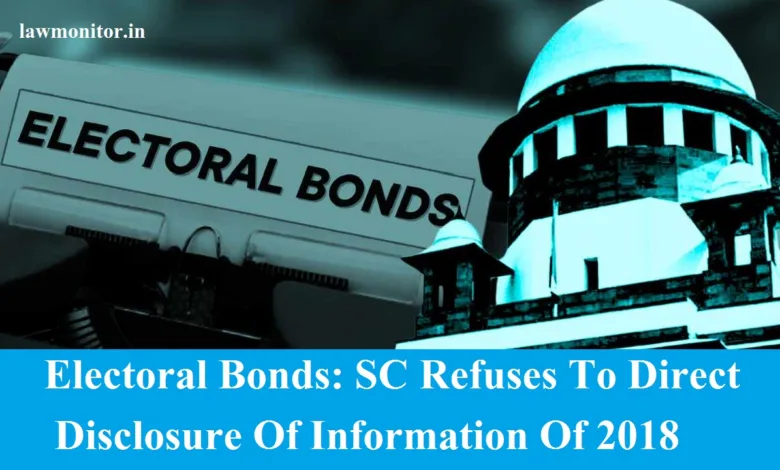
The Supreme Court declined to mandate the disclosure of electoral bond information dating back to their inception on March 1, 2018, during its session on Monday.
Refuses To Disclosure Of Information Of Electoral Bonds Sold in 2018
Currently, the Supreme Court has only instructed the State Bank of India (SBI) to reveal details regarding bonds sold since the court’s interim ruling on April 12, 2019, until the scheme was declared unconstitutional on February 15. In the interim ruling, a bench led by former Chief Justice Ranjan Gogoi directed all political parties to provide the Election Commission of India (ECI) with information regarding donations received via electoral bonds.
In today’s hearing, a five-judge bench led by Chief Justice DY Chandrachud clarified that the decision to mandate disclosure from April 12, 2019, onwards was deliberate. Chief Justice Chandrachud explained that after the interim ruling of April 12, 2019, donors were made aware of the potential for disclosure. He addressed Senior Advocate Vijay Hansaria, representing the ‘Citizens Rights Trust’, which sought disclosure from March 2018, stating that the choice not to request disclosure before the interim order was a conscious decision by the constitutional bench.
The court emphasized that altering the disclosure date would constitute a substantive modification of the judgment, which could not be directed through a miscellaneous application. Consequently, this application was dismissed as non-maintainable.
During the proceedings, Chief Justice Chandrachud informed Senior Advocate Mukul Rohatgi, representing the Federation of Indian Chambers of Commerce & Industry (FICCI) and the Associated Chambers of Commerce & Industry of India (ASSOCHAM), that everyone had been notified in April 2019 following the interim order directing data collection.
At the conclusion of the hearing, the court clarified that the State Bank of India must provide all available details, including alphanumeric and serial numbers, if any, of bonds purchased after April 11, 2019. To preempt future disputes, the bank’s chairperson was instructed to submit an affidavit by 5 PM on Thursday, March 21, confirming that the SBI has disclosed all relevant information.
Additionally, the bench directed the Election Commission of India to promptly upload details received from the SBI onto its website.
Importantly, during the hearing, the apex court asserted that the State Bank of India must not be selective in its disclosure and must reveal all details, including the unique numbers of the bonds.
| Daily current affairs Updates | Click Here |
| Law Notes Free Channel | Click Here |
Electoral bonds: Parties get How Much?
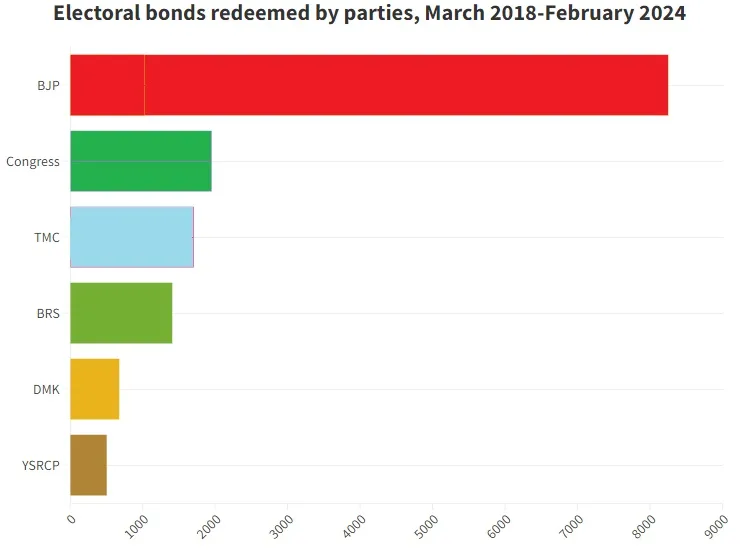
A staggering sum of Rs 8,251.8 crore has been traced back to the BJP, constituting nearly half of the total bonds sold, which amounted to approximately Rs 16,518 crore. This significant figure underscores the substantial financial advantage the BJP has accrued through this scheme.
In comparison, the Congress party emerges as a distant second, with Rs 1,952 crore worth of bonds redeemed. The margin between the BJP and Congress in terms of financial gains through this mechanism is stark, highlighting the stark discrepancy in funding between the two major political entities.
Following closely behind the Congress is the Trinamool Congress, which redeemed bonds worth Rs 1,705 crore. While trailing behind the BJP and Congress, the Trinamool Congress still commands a notable share of the funds obtained through this system.
These revelations not only underscore the financial prowess of the BJP but also raise questions about the transparency and equity of the funding mechanisms employed by political parties in India.

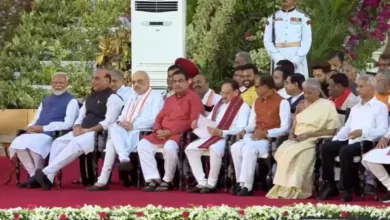
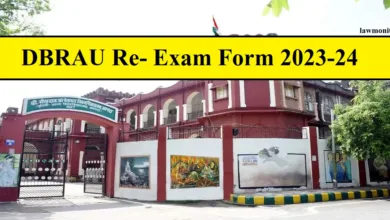
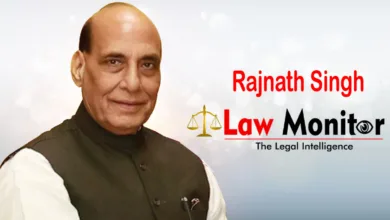
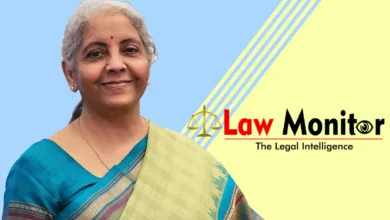
Hi, Natalie from Social Buzzzy here. I’ve come across a revolutionary tool for Instagram growth and had to share it with you!
Best wishes your success,
Natalie from Social Buzzzy
Hello, I’m Natalie from Social Buzzzy checking in. I’ve come across a revolutionary tool for Instagram engagement and just had to share it with you!
Social Growth Engine introduces an amazing tool that skyrockets Instagram engagement. It’s easy:
– Keep focusing on producing fantastic content.
– Affordable at under $36/month.
– Secure, powerful, and compliant with Instagram.
Having seen amazing results, and I know you will too! Upgrade your Instagram game right away: http://get.socialbuzzzy.com/instagram_booster
Cheers your success,
Your friend Natalie